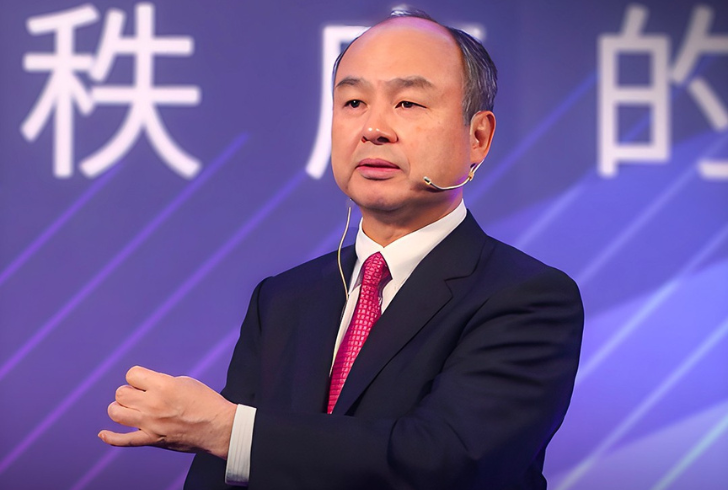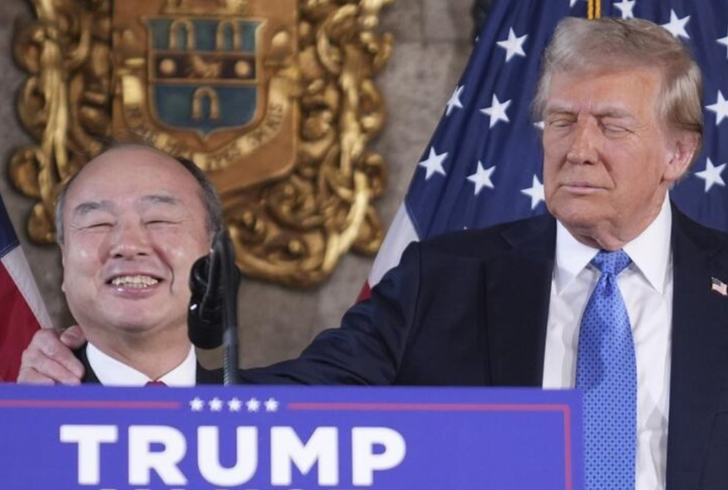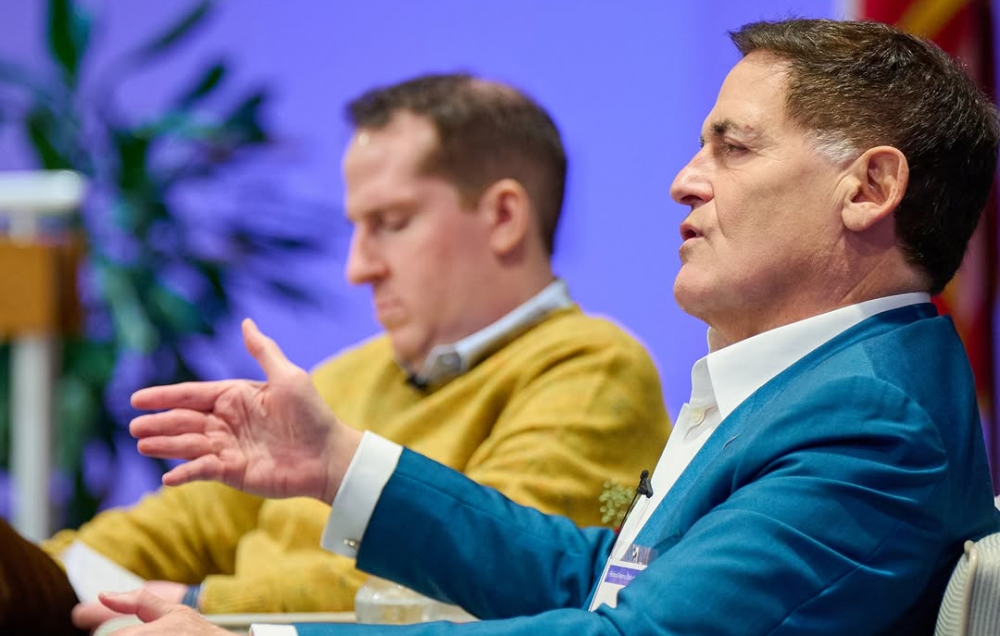SoftBank, the Japanese investment giant, plans to pour $100 billion into US projects over the next four years. This massive commitment focuses on artificial intelligence, startups, and other transformative industries. The announcement, made at Mar-a-Lago in Palm Beach, Florida, highlights optimism about the US economy. SoftBank CEO Masayoshi Son, joined by former President Donald Trump, emphasized the significance of this bold initiative.
A Bold $100 Billion Vision

Instagram | inc42.media | Masayoshi Son drives SoftBank’s $100B US plan.
SoftBank’s $100 billion investment plan notably doubles its previous pledge from 2016. In particular, Masayoshi Son expressed excitement about this initiative, which aims to fuel innovation and create economic opportunities in the United States.
Also, Trump called this announcement a "monumental demonstration of confidence in America’s future." Additionally, the company’s focus on artificial intelligence highlights its intention to reshape industries poised for rapid growth. Finally, SoftBank’s history of investing in transformative businesses, including Nvidia, Yahoo, and Alibaba, underscores its reputation as a global leader in innovation.
What This Investment Means for the U.S.
SoftBank’s substantial pledge promises to deliver a range of benefits to key industries across the United States. This initiative will likely create new jobs, enhance infrastructure, and support advancements in critical sectors such as technology and robotics. It also opens the door for collaboration between foreign investors and US startups, offering smaller firms opportunities to scale their operations.
Key beneficiaries of SoftBank’s investment include:
1. Artificial Intelligence: Development of AI applications for healthcare, logistics, and autonomous vehicles.
2. Startups: Expansion of small businesses with innovative solutions.
3. Robotics: Advancements in automation and the construction of smart factories.
This investment highlights SoftBank’s belief in the United States as a hub for global innovation.
Masayoshi Son’s Approach to Investments
Masayoshi Son, known for his ambitious investments, has built SoftBank into a major force in the global market since its founding in 1981. He strategically backs companies that drive market innovation, often producing remarkable results.
SoftBank’s portfolio includes major players such as:
1. Nvidia – A leader in AI and graphics processing.
2. Yahoo – An early innovator in internet search engines.
3. Alibaba – A powerhouse in Chinese e-commerce.
While Son’s risk-taking strategy has led to groundbreaking successes, some investments have encountered challenges. SoftBank’s large stake in WeWork, for example, faced setbacks when the office-sharing company filed for bankruptcy in 2022. Similarly, its robotics-focused pizza-making startup, Zume, failed to meet expectations. Despite these obstacles, SoftBank continues to adapt its strategies and pursue transformative opportunities.
Doubling Down on US Investments

Instagram | univision34 | Son and Trump discuss SoftBank’s doubled US investment for jobs and innovation.
This isn’t the first time SoftBank has made a major investment in the United States. In 2016, shortly after Trump’s election, Son announced plans to invest $50 billion in US startups, promising to create 50,000 jobs. That pledge marked a turning point in SoftBank’s relationship with US markets.
This time, Son has committed to doubling that investment. During the announcement, Trump jokingly asked if SoftBank could increase its investment further, adding enthusiasm to an already optimistic event.
Learning from Past Challenges
Large foreign investments in the US don’t always go as planned. Foxconn Technology Group, for instance, announced a $10 billion manufacturing project in Wisconsin in 2017. The project, which was expected to employ 13,000 people, scaled back significantly after the COVID-19 pandemic disrupted operations.
SoftBank’s new pledge, however, focuses on fast-growing sectors like artificial intelligence and technology. By targeting industries with high growth potential, the company aims to avoid the challenges that plagued similar ventures.
Accelerating the Investment Process
To attract large-scale investments like SoftBank’s, Trump recently announced plans to expedite federal approvals for energy projects and other large-scale infrastructure initiatives. He promised faster approvals for investments exceeding $1 billion, including environmental permits.
This approach simplifies processes for investors like SoftBank, allowing them to move forward without lengthy delays. By reducing bureaucratic hurdles, the US government aims to encourage foreign investments that benefit the economy.
SoftBank’s Long-Term Strategy
SoftBank’s focus on emerging industries reflects its long-term strategy of reshaping global markets. Beyond artificial intelligence, the company invests heavily in telecommunications, robotics, and renewable energy.
For example, SoftBank partnered with Saudi Arabia to build a state-of-the-art robot factory in Riyadh. By continuously supporting transformative technologies, the company cements its reputation as a pioneer in innovation.
The Broader Impact of SoftBank’s Investments
SoftBank’s $100 billion pledge to US projects showcases confidence in the country’s economic potential. Furthermore, this bold move is expected to drive innovation, create jobs, and advance key sectors that impact everyday life. By specifically focusing on industries like artificial intelligence and robotics, SoftBank positions itself as a leader in shaping the future. In turn, this collaboration between foreign investment and US enterprise ensures lasting benefits, thereby reinforcing America’s role as a global leader in technological advancements.






